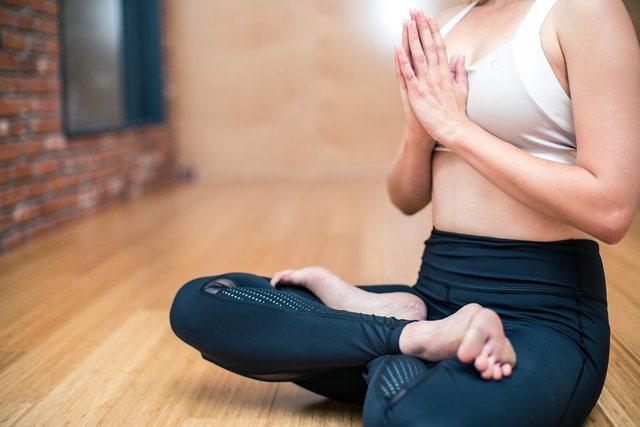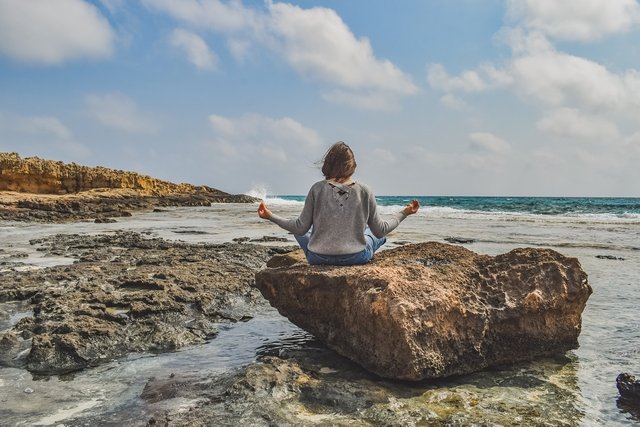What is meditation? How is it useful for our health ....

Meditation is a contemplative practice that involves focusing one's attention on a particular object, thought, or activity in order to achieve a state of calm and clarity. It is a centuries-old practice that has been adopted by various cultures and religions throughout the world.

Meditation is an evidence-based practice that has been shown to have numerous benefits for our physical and mental health. It has been found to be an effective tool for reducing stress, anxiety, depression, and chronic pain. Meditation can help improve the quality and duration of sleep, which is essential for maintaining good health.
There are several types of meditation, such as mindfulness meditation, transcendental meditation, and yoga meditation. Each type of meditation has a unique set of techniques and approaches, but all share the goal of bringing the mind to a state of focus and awareness.

The scientific community has shown an increased interest in the benefits of meditation in recent years, with many studies confirming its positive effects. Regular meditation has been linked to reduced levels of stress hormones in the body, improved immune function, and a reduction in the risk of heart disease and stroke.
Furthermore, meditation has been found to enhance cognitive function, including improved memory, attention, and decision-making skills. It has been shown to be particularly effective in reducing symptoms of anxiety and depression, making it a useful complement to traditional forms of therapy.

In conclusion, meditation is a valuable tool for promoting physical and mental health. Its numerous benefits are supported by scientific research and it can be an accessible and cost-effective practice for people of all ages and backgrounds. With regular practice, meditation can provide significant benefits for our health and well-being
Meditation can be a helpful way to reduce stress and improve overall well-being. Here are some basic guidelines for beginners:
Find a quiet and comfortable place to meditate where you won't be interrupted.
Sit comfortably, either on a chair or on a cushion on the floor, with your back straight but relaxed. You can also lie down if sitting is uncomfortable for you.
Close your eyes, or if you prefer, keep them open with a soft gaze.

Focus your attention on your breath, either by noticing the sensation of your breath as it goes in and out of your nostrils, or by feeling the rise and fall of your abdomen as you breathe.
Your mind will likely wander and that's okay, just gently bring your focus back to your breath every time you notice it has wandered.

Try to meditate daily, ideally at the same time each day to establish a routine.
Remember that meditation is a skill that takes practice, and it's okay to feel distracted or like you're not doing it right. With time and patience, you will begin to notice the benefits of this practice.

How do you practise every day?
Start with 5-10 minutes of meditation per day, and gradually increase the duration as you become more comfortable with the practice.

what kind of good result I have find in my body after meditation...
Reduced stress: Meditation has been shown to reduce the levels of the stress hormone cortisol, which can help to decrease feelings of anxiety and tension.
Lowered blood pressure: Studies have found that regular meditation practice can lead to lower blood pressure, which in turn can reduce the risk of heart disease.

Improved sleep: Practicing meditation before bed can help calm the mind and improve the quality of sleep.
Increased focus and attention: Meditation can improve the ability to concentrate and focus, as well as improve overall cognitive function.
Reduced pain: Meditation can help to reduce the perception of pain by increasing the body's production of natural painkillers.

Strengthened immune system: Studies have shown that regular meditation practice can lead to an increase in immune system function, which can help protect against illness and disease.
Overall, meditation can have a range of positive effects on the body and mind, leading to improved overall health and well-being

You've got a free upvote from witness fuli.
Peace & Love!
Downvoting a post can decrease pending rewards and make it less visible. Common reasons:
Submit
Thank you so much fuli.i appreciate your love
Downvoting a post can decrease pending rewards and make it less visible. Common reasons:
Submit